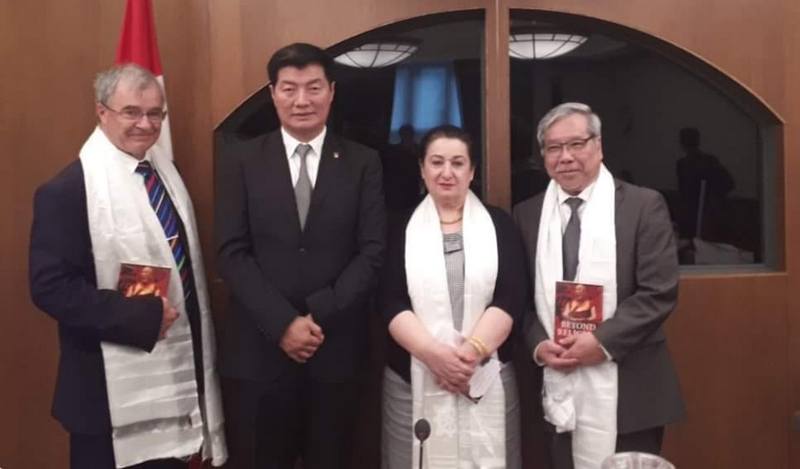Ottawa — Canada’s Senate Committee on Foreign Affairs and International Trade has invited President Dr Lobsang Sangay to participate in the committee’s hearing on Tibet on June 6, 2019.
Officials from the Global Affairs Canada will also testify before the committee on Tibet related issues, according to a statement by the Canada Tibet Committee (CTC), an independent non-governmental organisation of Tibetans and non-Tibetans living in Canada.
It stated that "the hearing was proposed by Senator Thanh Hai Ngo who, earlier this year, introduced a motion on Tibet in the Senate Chamber calling for Canada’s support to the genuine autonomy in Tibet."
"The motion also calls for the People’s Republic of China to: renew the Sino-Tibet dialogue, respect linguistics and religious rights of the Tibetan people, immediate release of all Tibetan political prisoners, and reciprocal access to Tibet," the CTA added.
This Senate Motion, introduced on Thursday, March 21, 2019, says "Restrictions on fundamental rights and freedoms – including freedom of expression, religion, movement, and conscience – are severely curtailed and increasingly repressive in Tibet."
"Tibet has been ruled since 1950 by the Chinese Communist Party (CCP), which has been divided into the Tibet Autonomous Region (TAR) and 12 Tibetan autonomous prefectures. To date, China continues to face criticism regarding its human rights violations in the TAR and the prefectures."
The same committee hosted Dr Lobsang Sangay, President of Central Tibetan Administration, last year where he spoke on strategic importance of Tibet for China in terms of geopolitical and environmental advantage, and also highlighted key issues concerning religion, language and cultural rights in Tibet.
Quoting President Dr Lobsang Sangay's testimony last year at the Senate, Senator Thanh Hai Ngo said: “Mr. Sangay indicated that, by adopting a motion on Tibet, the Government of Canada could actively support the initiation of a dialogue between China and Tibet, without preconditions, in the spirit of the middle way approach proposed by the Dalai Lama. The middle way approach would provide for genuine autonomy for Tibet within the framework of China’s constitution and laws.”
The Chinese Communist totalitarian regime began their invasion of Tibet in 1949, reaching complete occupation of the country in 1959. Since that time, more than 1.2 million people, 20% of the nation's population of six million, have died as a direct result of China's invasion and occupation. In addition, over 99% of Tibet's six thousand religious monasteries, temples, and shrines, have been looted or decimated resulting in the destruction of hundreds of thousands of sacred Buddhist scriptures.


![Tibet has a rich history as a sovereign nation until the 1950s when it was invaded by China. [Photo: File]](/images/stories/Pics-2024/March/Tibet-Nation-1940s.jpg#joomlaImage://local-images/stories/Pics-2024/March/Tibet-Nation-1940s.jpg?width=1489&height=878)
















